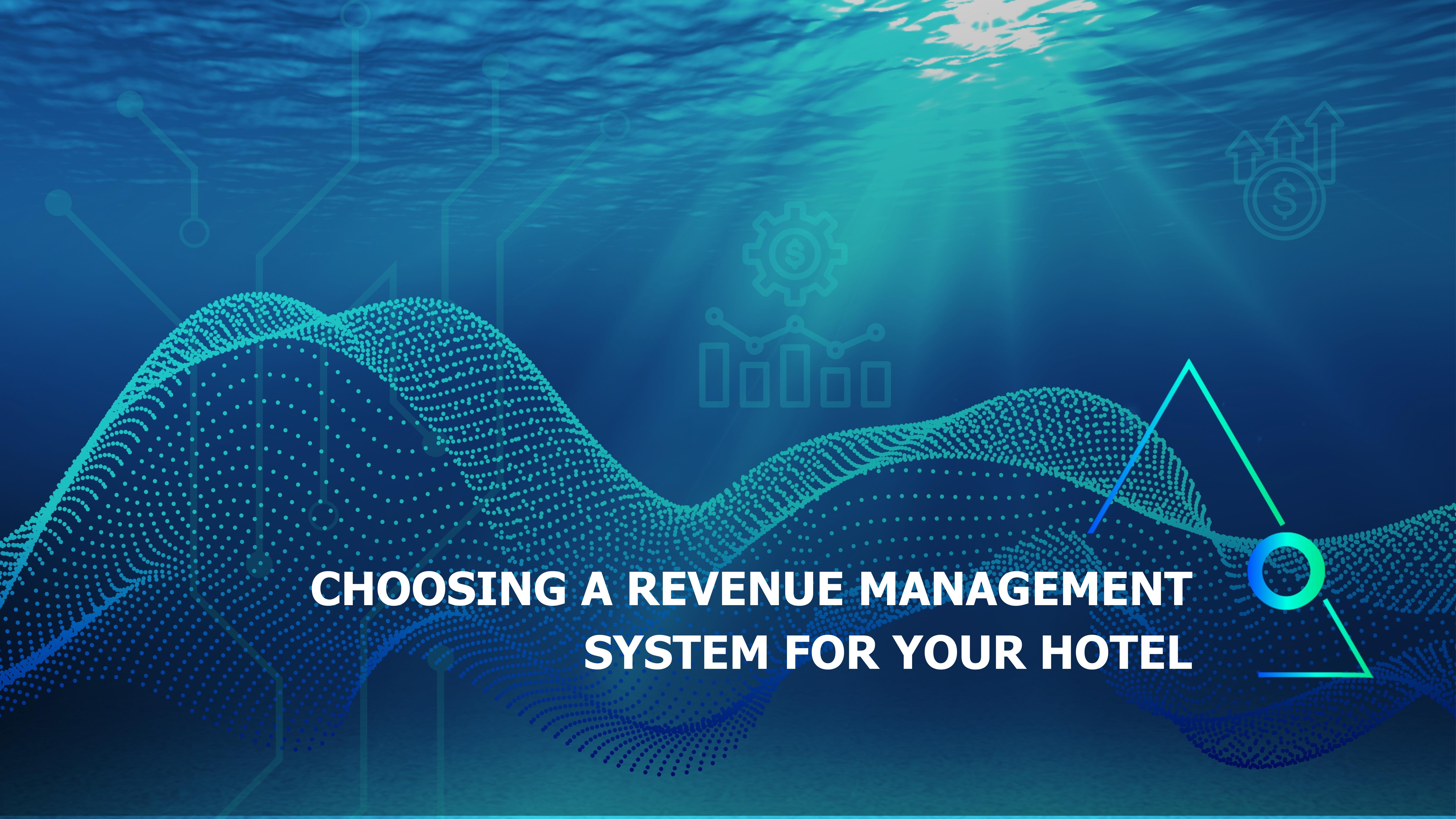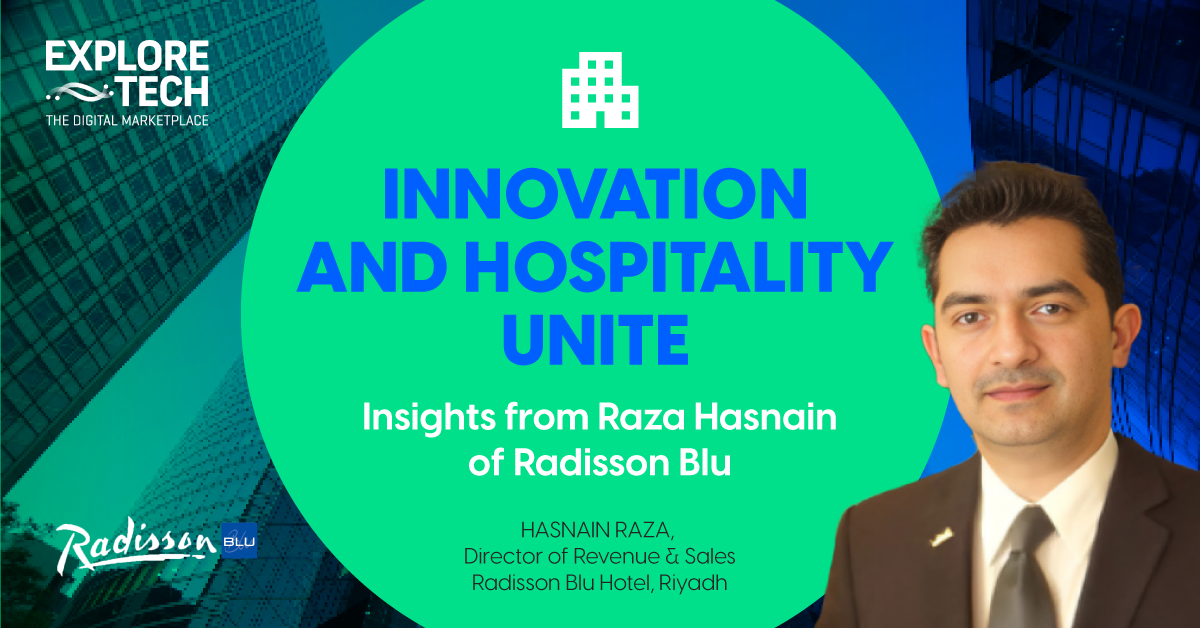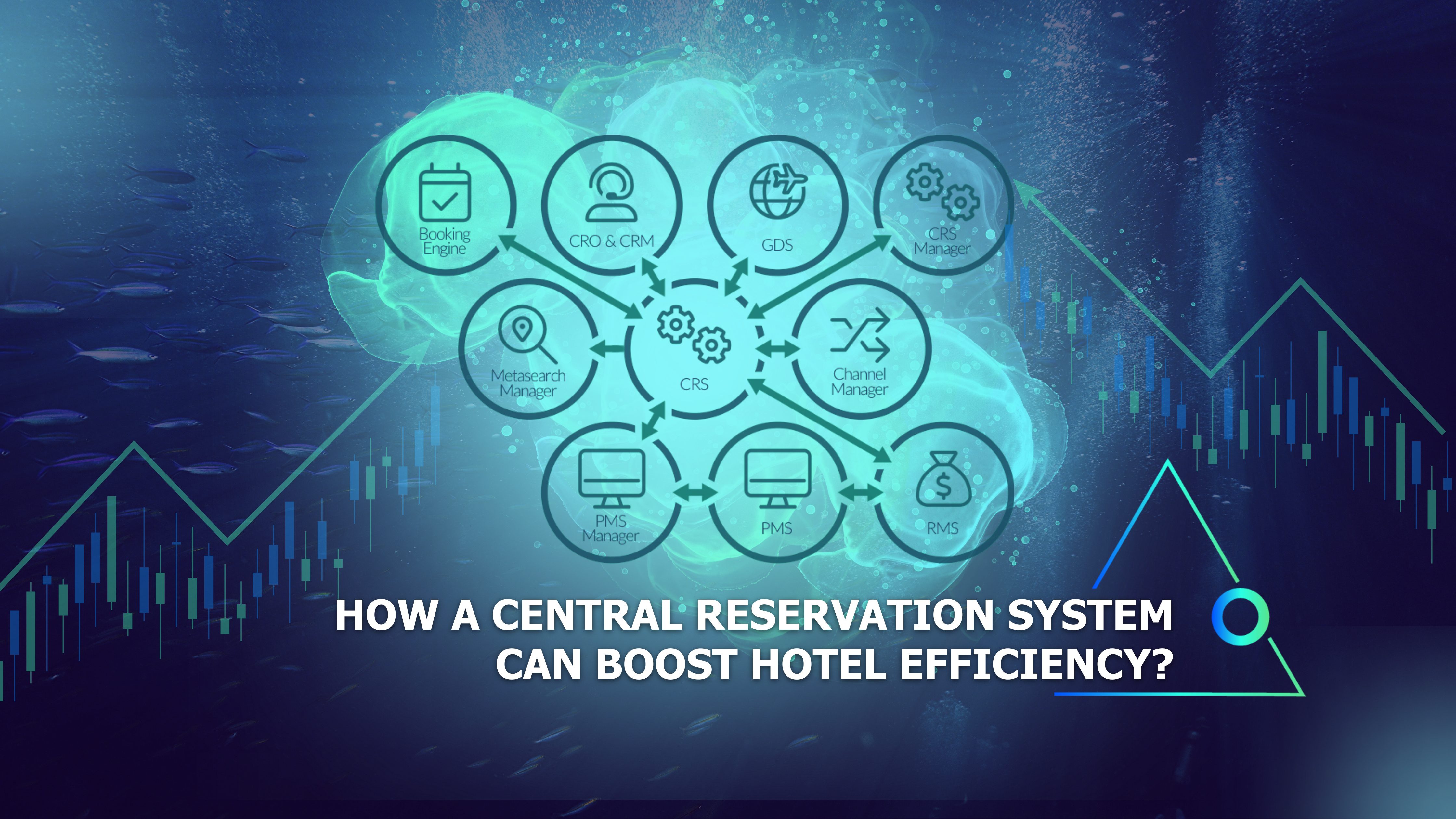
As the travel market and hospitality industry continues to experience tremendous upheaval, many hotels, resorts and the like are making significant changes to their operations by introducing hotel and travel technology.
In the rapidly-changing environment many legacy solutions built on old technology are no longer suitable for our world. More than ever, hoteliers need to rely on a Revenue Management System (RMS) based on intelligent algorithms and innovative technology that allows them to adapt to ever-changing demand and an uncertain future.
What is a Revenue Management System (RMS)?
Simply put, an RMS analyzes competitor rates, historical rates, market dynamics, and inventory levels to predict demand and provide rate recommendations. A sound RMS will automate the entire process and generate rates to maximize revenue and profitability.
Revenue management software is a technology that has previously only been accessible to larger hotel groups. With the rise in smart tech and big data, access to these indispensable tools has become more available, and the ability to provide RMS technology to a broader range of hotels is becoming increasingly feasible.
Do Revenue Management Systems present any Challenges?
Of course, RMS implementation is not without its challenges.
Francesco Sala, Revenue Director at Emaar Hospitality Group, says, “Managing revenue and building effective strategies within the hospitality industry can be difficult and time-consuming.”
Sala continues, “Some of the most significant revenue management-related challenges include the shortage of experienced specialists, scarcity, and cost of technology, unstable demand and market conditions, the cost of distribution channels, time management and lack of communication and trust.”
The benefits of using a Revenue Management System
According to Kamal Kashyap, Director of Revenue Optimisation at Shangri-La Hotels and Resorts,“Hotel owners are very much aware of the important role that a revenue management strategy plays in the success of their business. Marketing the right room, to the right guest, at the right time, at the right price, via the right platform is critical to optimizing results and facilitating the overall growth of a hotel.”
Let’s explore the four major benefits of RMS.
Increased Accuracy
A significant advantage of RMS is that they can place you ahead of the competition by increasing the accuracy of your rates. Information required to yield your rates is received directly from your property management system (PMS), guaranteeing accurate information.
Additionally, guesswork is eliminated since an RMS works with live data from within your business and external factors. Access to an influx of accurate information at all times means that you can make informed decisions every time.
Accuracy equates to avoiding risk in the hotel and hospitality industry and can help squeeze out the most revenue from your business.
Understanding Booking Behaviors
With constant analysis comes a better understanding of your customer and customer experience. When are guests making bookings? Where are they making their bookings? How early are they booking?
An RMS will allow you to gather more information to help you make informed decisions. Once you have collected more information about your hotel and its customer base and customer experience, you can begin setting rates that appeal to the right customer, at the right time, through the right channel.
Forecasting Demand
Demand forecasting estimates the demand of customers during specific times. Essentially, hoteliers need this information to predict the times throughout the year when their hotel's demand rises and falls.
Adjusting room rates to this is key to success and staying on top of the competition. Meanwhile, forecasting demand is also helpful for management and those planning future goals and budgets.
Forecasting also generates vital information for marketing teams and can help direct new campaigns. By deploying targeted campaigns, your hotel can begin working harmoniously with RMS data.
For example, your hotel's marketing team can alter their approach if your RMS calculates that a certain period should be productive even though sales don't reflect predictions.
Increased Revenue
Naturally, the primary advantage of an RMS is its ability to generate more revenue for your establishment. As a hotelier, you might like to know that implementing strategic revenue management can result in a revenue increase of between 2 and 10%.
In addition, an effective RMS can provide much-needed relief for hotel managers who need to focus on other vital areas of concern. For this reason, an RMS can help increase the overall efficiency of your hotel.
What Features to Look for in an RMS
As you seek to optimize revenues, drive profits, save time, and outperform competitors, the following are a few of the features to look out for when selecting an RMS to optimize your business segments:
Better Time Management
An RMS removes the need for manual pricing work, typically saving many hours every week. The majority of systems are cloud-based, allowing multiple users to log in and check data from a centralized dashboard. With a good RMS, you can quickly see all pricing, industry, and competitor data in one place.
More Efficiency
Even the world’s best Revenue Managers are only human, and manual pricing inevitably leads to occasional mistakes or missed opportunities. Sophisticated algorithms don’t get tired or need a break – they’re always forecasting in real time based on supply, demand, and occupancy.
Better Flexibility
A cloud-based RMS makes team collaboration more accessible and more agile. Pulling reports or checking pricing data should be viewable from your mobile device at any time.
Moreover, because an RMS is transparent with its data sets and pricing decisions, it is easy for other departments and team members to understand the pricing logic and revenue strategies that you are pursuing.
Enhanced Functionality
Hotels often miss additional revenue opportunities due to reactionary rather than predictive approaches. A good RMS is predictive and can factor in changing seasonal or specific demands and trends, ensuring you stay ahead of the curve.
Better Reporting
If you are still doing things manually, you will know how time-consuming it is to compile weekly or monthly data into an easily digestible format. More than ever, hotels rely on smart analytics across multiple departments, and revenue management should be no different.
Seamless Integration
It is vital to ensure that your chosen RMS integrates seamlessly with your Property Management System (PMS) to maximize the accuracy of forecasting, pricing, and inventory control.
Additionally, When RMS and Customer Relationship Management (CRM) systems are synced, you can create unique guest and customer experiences.
Dive into ExploreTECH to find the best RMS for your hotel
With the extensive range of Revenue Management Systems and Integrations available to the travel and hospitality industry, the ExploreTECH marketplace allows users to explore and review the vendor and solution that best suits their unique travel tech requirements.
Each RMS solution provider has particular benefits and features, so it is worth investigating and comparing them all via the ExploreTECH.io platform.

ExploreTECH WebDesk
admin

